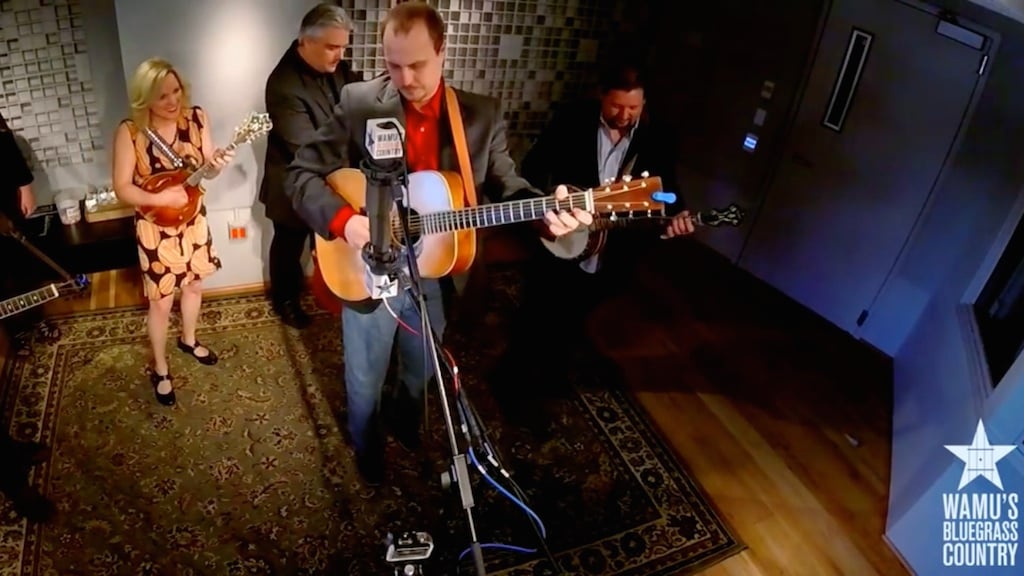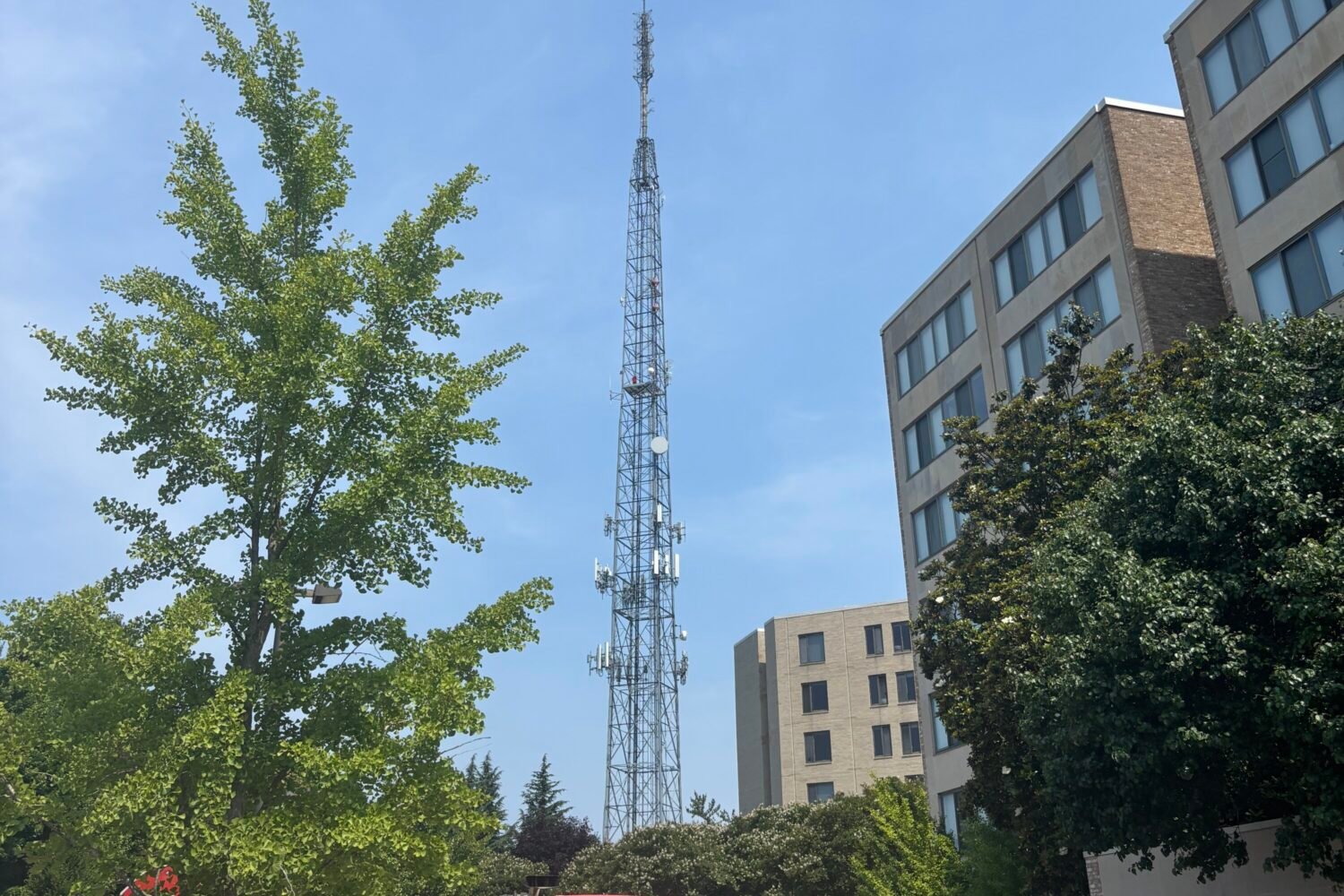WAMU will seek a buyer for its music service Bluegrass Country, station General Manager J.J. Yore told staffers Thursday afternoon. If one is not found by the end of December, the service will close.
The public radio station, which is owned by American University and is undergoing deep and existential changes under Yore, who arrived in August 2014. He’s been working on increasing revenue and refocusing the way the station does news, reorganizing its newsroom around pan-regional beats.
That sort of work often requires input from consultants, and in addition to work from Atlantic Media Strategies, WAMU has hired the nonprofit Public Media Company to analyze the business case for continuing its ownership of Bluegrass Country. The results came in about six weeks ago, says Yore. “In that report, they basically noted the huge demographic changes that have occurred in the Washington market over the past 20 years or so and said, ‘Look, your future is going to be much better on the news and information side than on the country side of operations.’ And they painted a picture that made it clear to us that we had some tough decisions to make.”
Bluegrass Country will post a request for proposals looking for a new owner on its website Thursday afternoon.
Bluegrass Country, which streams digitally and broadcasts on 105.5 FM and some “translators” (stations that rebroadcast its signal), is the only remaining evidence that WAMU was once one of the US’s premiere outlets for bluegrass and country music. The station began playing the music, which draws on “old-time” and “hillbilly” traditions, in 1967.
At that time, the Washington area had for several decades seen an influx of residents from the Appalachians and the South. Artists like Roy Clark, from Southeast DC, the Stoneman Family Band, from Prince George’s County, and Patsy Cline, from Winchester, Virginia, exemplified the mix of sounds that pinballed around the area after World War II, finding their expression in roadhouses, concert stages, and on Town and Country Time, a TV show hosted by DC transplant Jimmy Dean.
Dick Spottswood played the first bluegrass record on WAMU, and a decade later, “the station was carrying more than 20 hours of the music per week,” Mike Unger wrote in a history of bluegrass on WAMU in 2012. The Alexandria club the Birchmere began hosting bluegrass music in the early ’70s and became a hub for groups such as the Seldom Scene and the Johnson Mountain Boys, whose fiddle player was Eddie Stubbs, now an announcer for the Grand Ole Opry. Spottswood and Gary Henderson (who produced the first bluegrass broadcast on WAMU) still have shows on Bluegrass Country.
The station began scaling back its bluegrass commitment in favor of news in recent years and launched Bluegrass Country as a standalone digital operation in 2001. It moved all its bluegrass programming off its main signal in 2007, first to an HD radio signal, and then to 105.5 and 93.5 FM as well. “We’ve been here at home on WAMU’s airwaves for 49 years,” says Katy Daley, Bluegrass Country’s managing producer and morning host. “In fact, July 2 was our 49th anniversary. This is a sad day for us, but it’s one we understand. Everyone’s got a budget.”
And the details of Bluegrass Country’s budget suggests that anyone who buys Bluegrass Country will need to motivated by a sense of cultural obligation rather than a desire to get wealthy. “Bluegrass Country is operating with a deficit and has been for more than a decade,” says WAMU spokesperson Benae Mosby. In fiscal 2016, Mosby says, “the operating fund deficit was $142,000.”
To that point, Yore says WAMU will be looking for a buyer who appreciates the importance of the Bluegrass Country service and not necessarily someone who’ll pay the most for it.
“This is not about the money,” he says. “It’s about finding a new home: An individual or an organization that sees this kind of music as part of a cultural mandate.”
Bluegrass’s cultural footprint in the DC area remains large. Bluegrass Country’s YouTube channel has had four-and-a-half million views, Daley says, and it continues to introduce new listeners to the music and be an obligatory stop for touring bands. A DC native, Daley first heard bluegrass on an Armed Forces Radio show called Rice Paddy Round-up when her parents were stationed in Okinawa, Japan. She attended college in North Carolina, where she says, “I never heard the word bluegrass used. The first time I heard it was on WAMU.” Daley plans to stay with Bluegrass Country no matter who ends up owning it. “No! No,” she says about the prospect of leaving. “I met my husband at this radio station. This is a really important place for me.”
Bluegrass Country’s audience is split roughly in the middle between terrestrial radio listeners and people who listen online, Daley says–in May, the former had about 33,400 weekly listeners and the latter accounted for about 27,000. WAMU plans to sell its translators, and the future of the 105.5 frequency, which it leases, will depend largely on the plans of the new owner.
If there is one. WAMU’s diagnosis of the headwinds facing Bluegrass Country is harsh: Its analysis showed “revenue and audience listening for the bluegrass service would trend downward over the next five years.” WAMU’s Bandwidth service, which focuses on local music, especially indie rock, will continue: “I don’t think of that so much as music as music journalism,” Yore says. “That is continuing, and that’s part of our arts and culture beat on WAMU.”
From now until New Year’s Eve, Daley says, Bluegrass Country will be pulling out all the stops, trying to make “the last months terrific ones. Don’t give up on us,” she says. “You might get some of your best listening.”
Correction: This post, for reasons I cannot explain, originally called Katy Daley “Katy Davis.” My sincerest apologies.




















